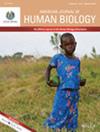Vaccine Knowledge and Acceptance Among Hadzabe Hunter-Gatherers in Tanzania
Abstract
Objectives
Vaccines are highly successful in preventing disease, but misinformation has fueled vaccine hesitancy globally, thereby reducing immunization rates and weakening herd immunity. Vaccine knowledge and hesitancy among hunter-gatherers is a crucial area of research and intervention, as their mobile lifestyle exacerbates other challenges, such as marginalization and medical mistrust.
Methods
In our exploratory study, we surveyed 91 Hadzabe adults across six camps (mean age = 39, 46% female) about their knowledge of vaccines and their safety and efficacy. Differences between sexes and camps were tested using Fisher's exact tests.
Results
Half of participants reported not knowing what a vaccine is, while one-third described vaccines as protecting health or preventing disease. About 32% were unsure about vaccine safety, while most Hadzabe adults strongly agreed vaccines are effective (65.3%). A majority (72%) agreed vaccines are important for children, yet only one-third strongly agreed on their importance for adults. More females than males expressed uncertainty about the importance of adult vaccines (p = 0.03). Participants in our sample perceived vaccines as less effective and more safe than the general Tanzanian population, based on 2018 Wellcome data.
Discussion
In our sample, results indicate that while Hadzabe participants generally agree that vaccines are important, particularly for children, important gaps in vaccine knowledge remain. There is a clear need to communicate vaccine information to the Hadzabe community in a culturally appropriate manner. Such efforts are critical in safeguarding the health of Indigenous populations experiencing greater market integration, thereby supporting access to vaccines against diseases.

 求助内容:
求助内容: 应助结果提醒方式:
应助结果提醒方式:


